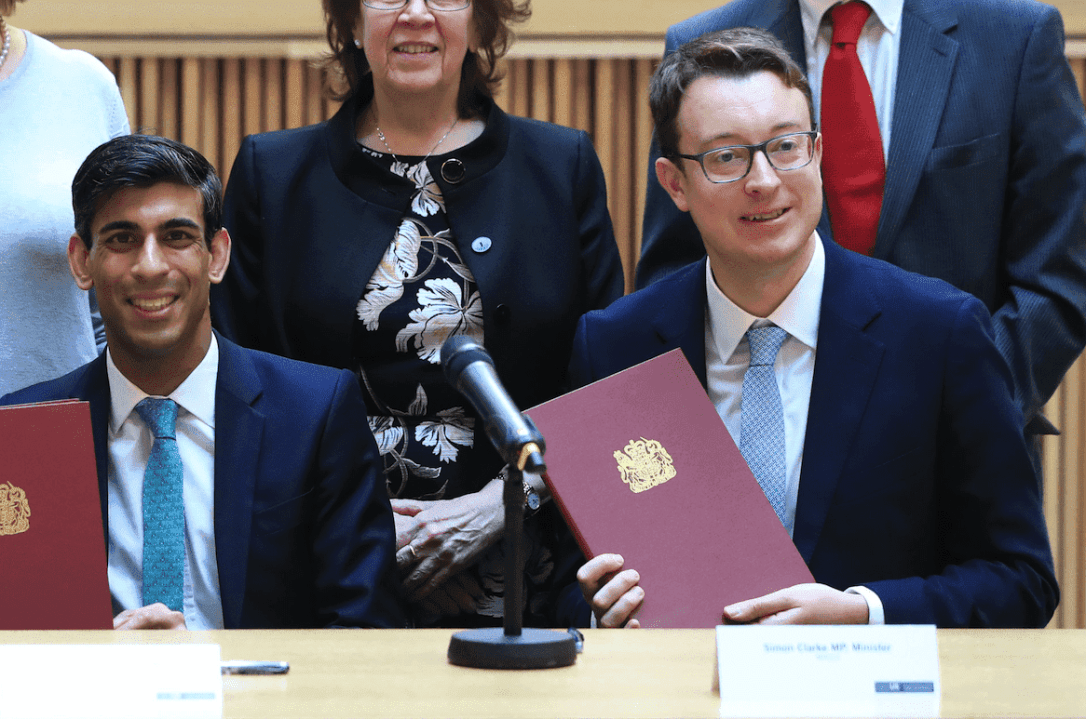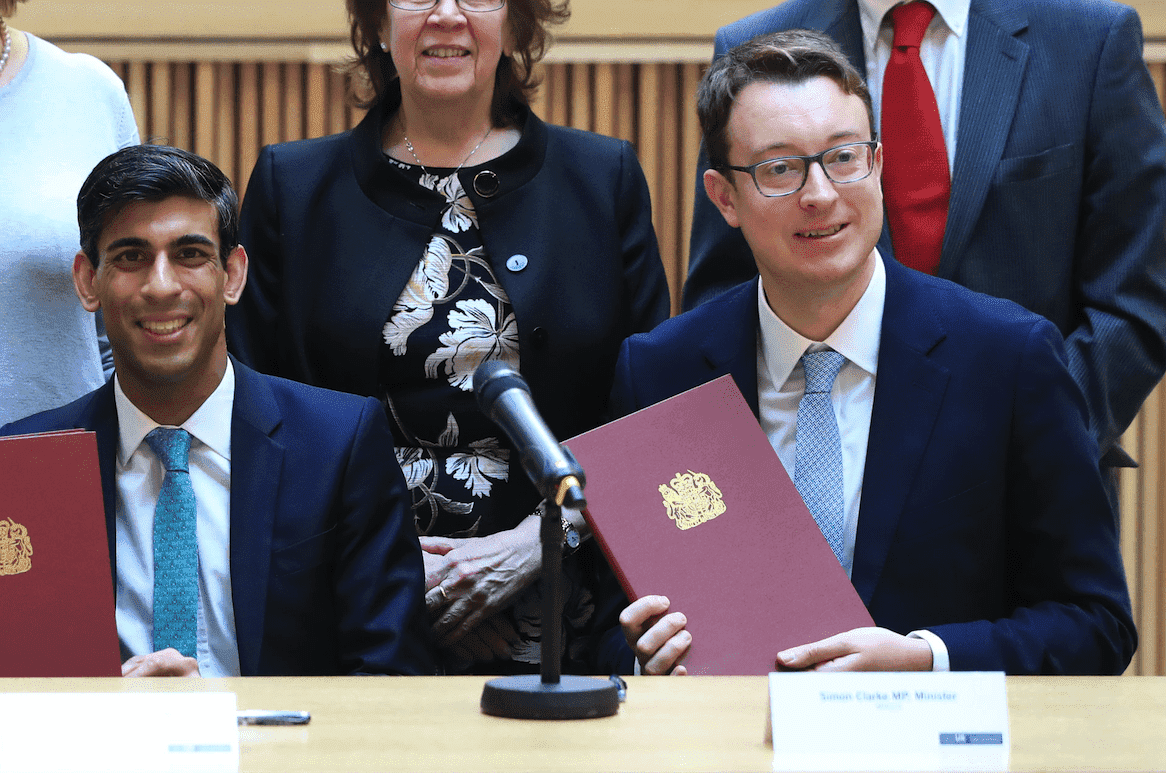Since the spring statement last week, Rishi Sunak has been dealing with complaints from all sides: the right have been arguing he should have been bolder with tax cuts, the left insists more support is needed to help people with the rising costs.
With the Office for Budget Responsibility projecting the biggest fall in living standards since records began, rumours of U-turns and further announcements started bubbling over the weekend. The media, the opposition, and even some Tory MPs have been asking Treasury representatives over and over again: is that all?
In a keynote address hosted by the Institute of Economic Affairs this morning, chief secretary to the Treasury Simon Clarke answered that question in no uncertain terms: yes, for now, that is all. He didn’t go so far as to rule out more support in future Budgets – it’s expected Sunak will reassess his energy subsidies in the autumn when Ofgem next readjusts the energy price cap – but for now, the era of unfunded spending is coming to an end. ‘That message needs to go out unequivocally today,’ Clarke said.
In order to get tax cuts, demands for more spending needs to end
The chief secretary repeatedly mentioned the increasing cost of servicing the debt, which is set to reach £83 billion this fiscal year. ‘If you remember just one fact from my speech today,’ he said towards the start of his remarks, ‘remember that one’. It’s a point the Treasury has been trying to bring home for the better part of the year, but especially in the past few weeks: the threat of inflation has consequences, not just for households, but for the public finances too. According to Clarke, Britain’s sensitivity to debt interest spending is almost twice as high as it was in 2014. The climbing costs of simply servicing the debt (that is, paying the interest on money we’ve already borrowed) can no longer be ignored.
‘The stark reality,’ Clarke said, ‘is that we are not going to be in a position to get that debt burden down and invest in public services in the way that we need to – and also to create the headroom for the lower taxes that the Chancellor set out in his tax plan – if we don’t have fiscal discipline.’
This is a major part of the Treasury’s argument, that spending cannot keep drifting upwards, especially not if the money is being borrowed. Clarke drew a line under speculation that the Treasury may come back round to top up Whitehall department budgets to bring the settlements from last year’s spending review in line with inflation. There is no plan, he said, to bring budgets in line with inflation, encouraging ministers instead to ‘think more creatively’ and prioritise their spending plans.
Despite all the emphasis on spending, the speech was primarily designed to announce the next steps in what Clarke describes as the ‘quiet revolution’ of Whitehall reform. The chief secretary emphasised efficiency gains and reducing the size of the government machine as major parts of the strategy. This will, in part, be a matter of numbers. The civil service headcount is ‘up 23 per cent since 2015/16, and up almost 7 per cent in 2021 alone: something that is impossible to justify long-term and something that we’re determined to reverse,’ explained Clarke. Reducing bureaucracy includes a pledge to ‘reduce the non-frontline civil service headcount to 2019-2020 levels by 2024-25’.
Clarke also emphasised the new committee formed by the Chancellor to find £5.5 billion worth of savings for reinvestment. The ‘hidden good news story’ of the speech, he said, was that he could already announce £3.4 billion was already saved in 2020-2021, thanks in large part to tackling fraud and digital inefficiency.
But while the headlines may have been about Whitehall improvements, the bulk of the speech reiterated Sunak’s warning to the Tory party last week: that in order to get tax cuts, demands for more spending needs to end. ‘No one should expect us to go further’ on spending commitments, he said. Clarke insisted that the last spending review will mark the ‘limit’ of this government’s willingness to expand Budgets.
Almost a week on from the spring statement, the chief secretary’s speech doubled down on the Chancellor’s message: mass borrowing and mass spending need to come to an end. It may not have proven a politically popular message over the weekend, but the Treasury isn’t shying away from it.








Comments